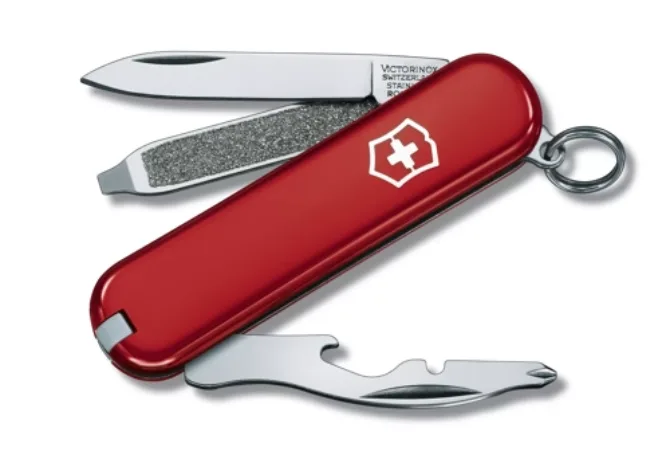
Key Messages Conveyed by Your Vocal Quality, Diction and Personality
The radio interview requires the communication skill to deliver a key message or answer questions convincingly with just a voice.
In televised, video or online interviews, speakers can use body language and facial expressions to reinforce key points. Radio interviews rest squarely on the clarity, personality and confidence conveyed by a faceless voice.
Live radio interviews can be unforgiving. There aren’t second takes or the option to edit out flubs. Recorded radio interviews can be edited, but editing tends toward featuring the best, most ear-worthy things that are said.
 Some people are routinely interviewed on radio because they have mastered the skill of saying something useful in a few easy-to-remember words. Everyone who is interviewed on radio should prepare for a medium where brevity is essential to reach audiences that may be listening while they are driving, working or doing chores.
Some people are routinely interviewed on radio because they have mastered the skill of saying something useful in a few easy-to-remember words. Everyone who is interviewed on radio should prepare for a medium where brevity is essential to reach audiences that may be listening while they are driving, working or doing chores.
Preparing for a Radio Interview
Radio interviews share the basic elements of any interview – speakers are introduced with their credentials, they are asked questions that may or may not be provided in advance and are expected to give reasonably concise answers. Long monologues don’t fare well on radio.
Interviewees should seek as much information as possible beforehand. Listen to the radio show or podcast to get a feel for how the host asks questions and pushes along the conversation. Look up the audience demographics of the radio show or podcast to understand who will be listening. Ask about where the interview will be conducted and whether it will live or pre-recorded.
Arrive at the studio or interview site early so you can scout the scene. Do what works for you to calm your nerves and make sure to ask for a glass of water. Make sure to loosen your jaw and vocal chords. Avoid coffee that can dry out your mouth.
 Delivering a Key Message
Delivering a Key Message
Like any interview, develop a key message and compile relevant facts and supportive statements. Because your audience can only hear you, edit your key message for how it sounds and how natural it is for you to say. Strive for bright and tight phrasing that can turn into quotable sound bites. To avoid sounding stiff and overly rehearsed, practice delivering the sound bites so they sound natural – and you sound smart and well-spoken.
As with any medium, repetition of the key message is important. It’s doubly important on radio because listeners my only be paying partial attention. You can only reach the person listening with one-ear with words that are ear-worthy and easy to repeat in the flow of the interview.
Don’t wait or hesitate in stating your key message. Get it out early so you have the opportunity to repeat it.
Some people appear routinely on radio because of their mastery of
saying something useful in a few easy-to-remember words.
 The Power of How You Sound
The Power of How You Sound
Research shows 80 percent of what a live audience recalls is what they see. That’s why effective speakers have visual reinforcement with video clips or PowerPoint slides. For success on radio, interviewees must paint a picture in words for listeners to “see”.
Verbal pictures can be vivid descriptions, notable details and meaningful anecdotes powered by active verbs and punctuated with an impactful statistic. Jargon, lots of numbers and insider references don’t play well, especially on radio.
Radio interviews are most effective when they take on the character of a conversation with two or more people chatting. The interviewee’s job is to make their part of the conversation engaging to people who are effectively listening blindfolded.
Speaker Versus Voice Training
Successful public speakers undergo media training to sharpen their words and maximize their body language. People who give radio interviews need media training to sharpen their words, practice brevity and tune up their voices.
Radio broadcasters practice speaking clearly, correctly pronouncing words and taking timely breath breaks. The diction and pacing of speakers are radio’s version of body language.
Some voices work better on radio than others, but with training and practice anyone can do a serviceable job in conveying their key message and providing what’s known as “good air” – commentary that connects with the listening audience.
While finny motions by speakers like excessive arm movements can distract viewing audiences, verbal tics can turn off radio listeners. Overuse of some words or phrases can be put-offs for many listeners. Starting every answer with “yeah” and using slang can come off as amateurish.
It’s important for radio interviewees to sustain their energy throughout the interview, which can last for anywhere from 10 to 60 minutes. The length of any interview also can be a cue of how wide and deep your preparation needs to be to answer questions.
 Summon Your Best Voice
Summon Your Best Voice
Radio interviews demand your best voice. That requires a posture that lets your voice sound relaxed and full-throated. Most radio interviews are conducted sitting down, so speakers should sit leaning forward and erect with their head up and facial muscles relaxed.
Practicing for a radio interview should include listening to a recording of yourself answering anticipated questions. How many “umms”, “likes” or “you knows” dotted your answers. Make yourself conscious of these worthless and, for some listeners, distracting verbal deadwood.
 The Magic of Radio
The Magic of Radio
Previous generations spent evenings listening to radio shows instead of playing video games. They listened to politicians, comedians and actors who informed and entertained through the power and distinct qualities of their voices.
Modern radio and podcasts compete with streaming television, YouTube and Tik Tok for audiences by providing an opportunity for people to present facts or express opinions in their own undistilled voice. In many ways, radio and podcasts provide the least manicured form of expression on the airwaves.
On radio, the way you sound is as important as what you say. What you say can be magnified many fold by how well you say it.




